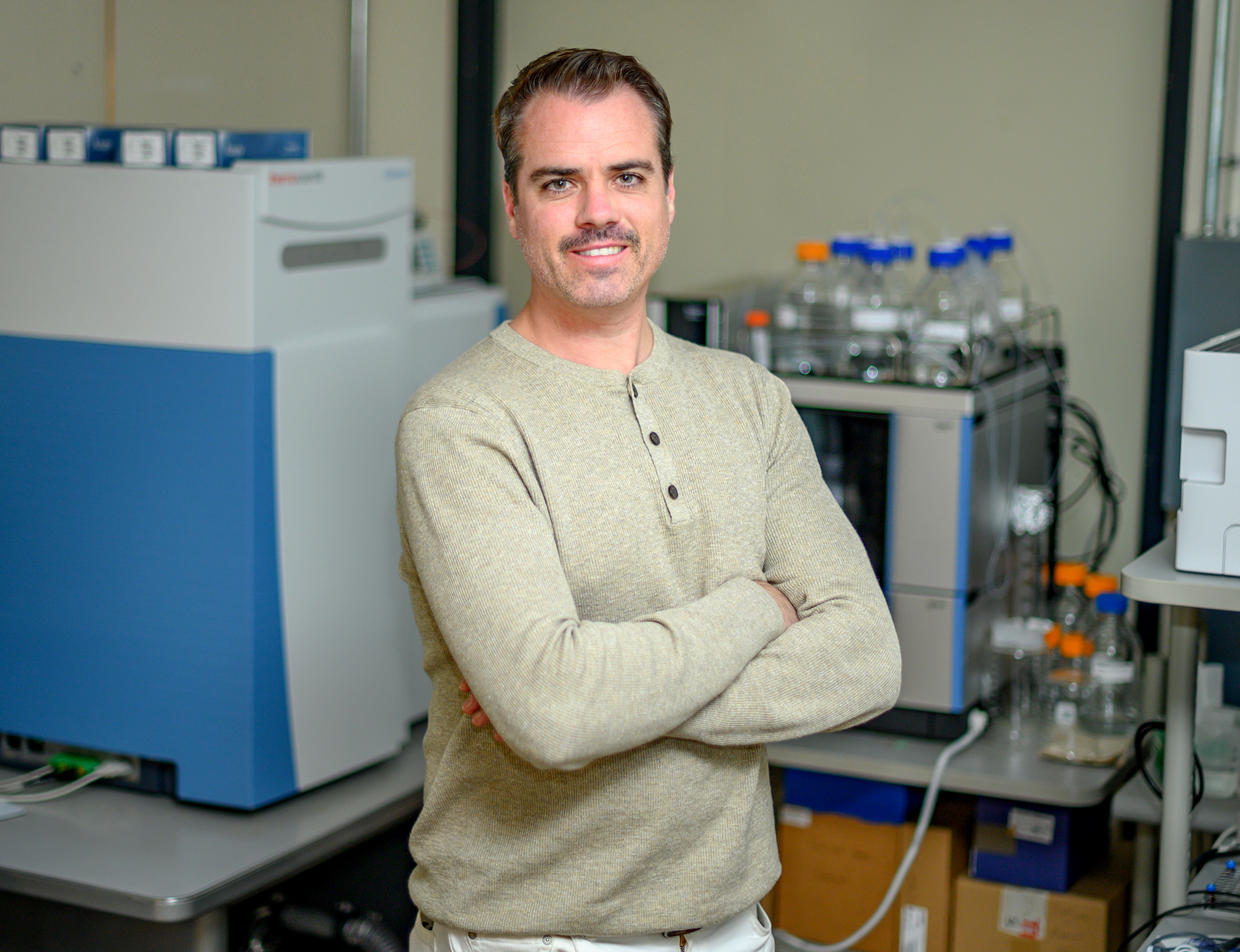Michigan State University biochemist Robert Quinn’s recent discovery related to bile acids produced by gut microbes represents a paradigm shift of 170 years of research in the field.
Bile acids are crucial to the human gastrointestinal system and are necessary for many processes in the human body, including fat digestion, vitamin absorption, microbiome modulation, and receptor signaling.
Bile acids were first described chemically in 1849, and Heinrich Wieland was awarded a Nobel Prize in 1927 for comprehensively describing their chemistry. This description included the final step of their synthesis — the conjugation of the amino acids taurine or glycine by our liver.
Almost a century later, research by Quinn and his colleagues led to a discovery revealing that the amino-acid conjugation of bile acids is a much more complex process than previously thought, and that much of it is done by our microbiome.
To support his research, Quinn, an assistant professor in the Department of Biochemistry and Molecular Biology in the College of Natural Science, recently received a one-year, $100,000 grant from Global Grants for Gut Health to dig deeper into this discovery and how it changes scientists’ understanding of the human gut microbiome.
To read more about Quinn's research, visit natsci.msu.edu
